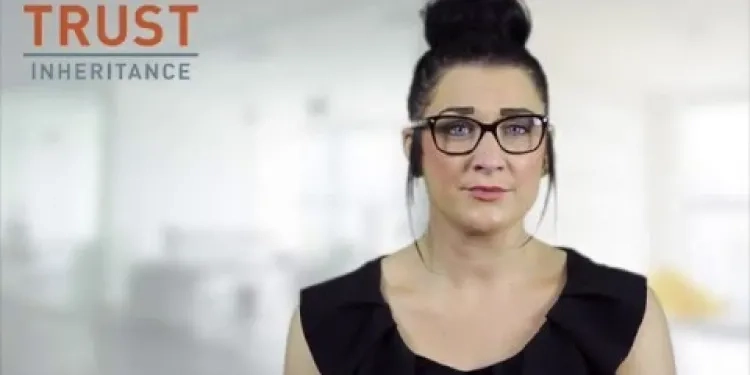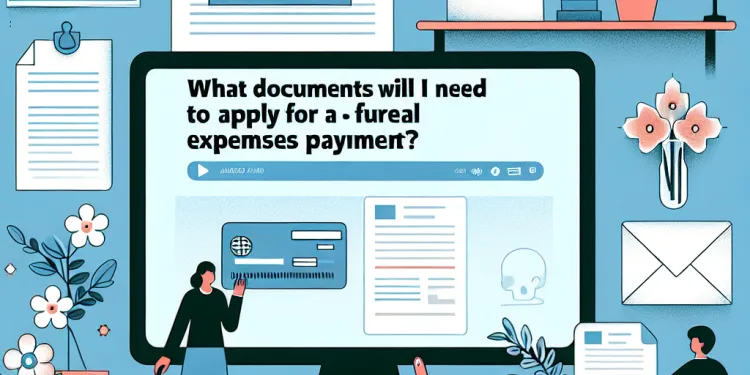
Find Help
More Items From Ergsy search
-

What is a public health funeral?
Relevance: 100%
-

What support is available for funeral costs in the UK?
Relevance: 50%
-

Funeral Costs - Where to get help? - Community Legal Education
Relevance: 49%
-

How to arrange a funeral in the UK
Relevance: 48%
-

Planning for your funeral
Relevance: 48%
-

Can I arrange a funeral service myself without a funeral director?
Relevance: 48%
-

Are there any charities that can help with funeral costs?
Relevance: 46%
-

Are there regulations on transporting the body before the funeral?
Relevance: 46%
-

What is a pre-paid funeral plan?
Relevance: 46%
-

What financial support is available for funeral expenses?
Relevance: 46%
-

What is a green or eco-friendly funeral?
Relevance: 46%
-

What is the average cost of a funeral in the UK?
Relevance: 46%
-

How do I choose a funeral director?
Relevance: 46%
-

What Do You Want for Your Own Funeral? | Personal Funeral Wishes Explored
Relevance: 45%
-

What financial help is available for funeral costs?
Relevance: 45%
-

What public health measures are important for managing the plague?
Relevance: 45%
-

How do I apply for a Funeral Expenses Payment?
Relevance: 44%
-

What are the different types of funerals available?
Relevance: 44%
-

Can I have a funeral service at home?
Relevance: 44%
-

What costs are usually associated with a funeral?
Relevance: 44%
-

Who is eligible for a Funeral Expenses Payment?
Relevance: 44%
-

How do I notify people about the funeral?
Relevance: 44%
-

How does the sugar tax align with public health strategies?
Relevance: 43%
-

What is the role of a funeral director in a traditional burial?
Relevance: 43%
-

What is the first step in arranging a funeral in the UK?
Relevance: 43%
-

How does sewage pollution affect public health?
Relevance: 43%
-

How much does a funeral typically cost in the UK?
Relevance: 43%
-

Does life insurance cover funeral costs?
Relevance: 43%
-

Can I get a loan to cover funeral costs?
Relevance: 43%
-

Can funeral directors offer payment plans?
Relevance: 43%
-

What impact does leaving WHO have on US public health policy?
Relevance: 41%
-

What documents will I need to apply for a Funeral Expenses Payment?
Relevance: 41%
-

How much can I receive from the Funeral Expenses Payment?
Relevance: 41%
-

Why are Nipah Virus outbreaks considered a public health concern?
Relevance: 40%
-

Can I use crowdfunding to raise money for funeral expenses?
Relevance: 40%
-

Planning Your Funeral in Advance? | Expert Tips from Celebrants
Relevance: 40%
-

How soon after the funeral can the cremation take place?
Relevance: 40%
-

Do I need to have a wake or reception after the funeral?
Relevance: 39%
-

How can I personalise a funeral service?
Relevance: 38%
-

Can I have a funeral ceremony at a woodland burial site?
Relevance: 36%
Understanding Public Health Funerals in the United Kingdom
What is a Public Health Funeral?
In the United Kingdom, a public health funeral, also commonly referred to as a "Pauper's funeral," is a service arranged by the local council when a person passes away without anyone able or willing to organize and pay for their burial or cremation. This may occur if the deceased has no known family or if their family is unable to afford the costs associated with a funeral.
Legal Framework and Responsibility
Public health funerals are conducted under the provision of the Public Health (Control of Diseases) Act 1984. It is the responsibility of local authorities to ensure that the deceased are respectfully laid to rest when no one else is available to make the necessary arrangements. Each council has its procedures, but generally speaking, they are mandated to provide a basic and dignified disposal of the body, prioritizing local cemetery or crematorium services.
What Does a Public Health Funeral Include?
A public health funeral typically includes a simple ceremony with minimal expense. The service covers the essential components: a basic coffin, transportation of the deceased from the mortuary, and a simple service at either a cemetery or crematorium. It is important to note that embellishments, such as floral arrangements or elaborate services, are typically not covered.
Eligibility and Application Process
Local authorities may conduct checks to ensure that there are no known relatives or friends willing to undertake the funeral arrangements. Additionally, checks are conducted to assess if the deceased left behind sufficient estate to cover the funeral expenses. When a public health funeral is deemed necessary, the local council takes responsibility, and any costs incurred may be recovered from the estate of the deceased if possible.
Considerations and Community Impact
Public health funerals serve as a crucial social safety net, ensuring dignity and respect for individuals at the end of life, regardless of their social or economic circumstances. They reflect the community's commitment to social responsibility and compassion. Understanding these services allows the public to better appreciate the role of local councils and the importance of ensuring that everyone receives a respectful farewell.
Understanding Public Health Funerals in the United Kingdom
What is a Public Health Funeral?
A public health funeral is when the local council arranges a funeral for someone who has died. This happens when no one can pay for their burial or cremation. It is also called a "Pauper's funeral." This can happen if the person had no family or if their family cannot afford a funeral.
Legal Framework and Responsibility
The law that covers public health funerals is called the Public Health (Control of Diseases) Act 1984. Local councils must make sure the person who has died is buried or cremated with respect. Every council might do things a bit differently, but they all must give a basic and respectful funeral. They usually use a local cemetery or crematorium.
What Does a Public Health Funeral Include?
A public health funeral is simple and costs very little. It includes a basic coffin, moving the body from the place where it is kept, and a simple service at a cemetery or crematorium. Things like flowers or big fancy services are not included.
Eligibility and Application Process
The council will check if there are any family or friends who can arrange the funeral. They also check if the person left enough money to pay for the funeral. If no one else can do it, the council will arrange the funeral. If the person had any money or property, the council might use that to pay for the funeral.
Considerations and Community Impact
Public health funerals are important because they ensure everyone gets respect after they die, no matter how much money they had. This shows that the community cares about all its members. Knowing about these funerals helps people understand the good work councils do and why it is important for everyone to have a proper goodbye.
Helpful Tools
Sometimes, using tools can help understand difficult topics. For reading, you can use audiobooks or apps that read text aloud. Pictures or videos about topics can also help. You can also ask someone to explain or discuss the topic with you.
Frequently Asked Questions
What is a public health funeral?
A public health funeral, sometimes referred to as a 'pauper's funeral', is arranged by the local council when someone dies and there is no one willing or able to pay for the funeral.
Who is eligible for a public health funeral?
A public health funeral is provided for individuals who pass away without any known family, or whose family cannot afford to pay for the funeral costs.
What does a public health funeral include?
A public health funeral typically includes a simple coffin, transport to a local cemetery or crematorium, and a basic ceremony. It does not usually include viewings, flowers, or a headstone.
Who pays for a public health funeral?
The cost of a public health funeral is covered by the local council, using funds allocated for this purpose under public health responsibilities.
Can family members attend a public health funeral?
Yes, family members can attend a public health funeral, even if they are unable to contribute to the costs.
How do local councils identify individuals who need a public health funeral?
Local councils usually work with hospitals, care homes, and police to identify individuals who have died without relatives or financial means.
Is a burial or cremation provided in a public health funeral?
This can vary, but often, a cremation is provided due to cost considerations. However, if the deceased's known wishes were for a burial, efforts may be made to accommodate this.
Can friends or charities contribute to a public health funeral?
In some cases, friends or charitable organizations may contribute additional funds for specific aspects of the funeral to personalize it.
What happens to the deceased's belongings in a public health funeral?
The deceased's belongings are usually managed by the council or hospital until relatives can be found. If no relatives are located, belongings are typically sold or disposed of.
How are public health funerals advertised or announced?
Some councils place notices in the press or on their websites seeking information on the deceased's relatives.
How soon after death is a public health funeral conducted?
Public health funerals are typically conducted as soon as possible, often within a few weeks of death, depending on how quickly necessary arrangements can be made.
Is there a religious component to public health funerals?
Public health funerals are generally non-religious, but if the deceased's religious preferences are known, they may be considered in the arrangements.
What legal authority governs public health funerals in the UK?
Public health funerals are governed by the Public Health (Control of Disease) Act 1984 in the UK, which obligates councils to undertake the funerals of those who have no other arrangements.
Can a public health funeral be upgraded to a private funeral?
Yes, if family or friends can be found and can contribute funds, they can arrange for additional services to upgrade the funeral.
Are public health funerals a common practice in the UK?
Public health funerals, while not the norm, are a necessary service provided by local councils, carried out quite regularly to ensure dignified arrangements for those in need.
What is a public health funeral?
Sometimes, a person dies and there is no one to pay for their funeral. A public health funeral is when the local council helps with the funeral. The council makes sure the person is buried or cremated respectfully.
Here are some tips to help understand:
- Use simple words.
- Read slowly and take breaks.
- Ask someone to explain if you're unsure.
A public health funeral is a type of funeral that the local council arranges. Some people call it a 'pauper's funeral'. This happens when someone dies, and no one can or wants to pay for their funeral.
Consider using helpful tools like audiobooks or text-to-speech apps to make reading easier. Taking breaks and reading in short sessions can also help.Who can have a public health funeral?
A public health funeral is a simple ceremony paid for by the council when someone dies. Here’s how it works: - If a person dies and has no money or family, the council can help. - The council will check if there is anyone who can pay. - If no one can pay, the council will take care of the funeral. Supportive tools or techniques you might find helpful: - Use a dictionary to help with hard words. - Ask a friend or family member to read with you. - Highlight important words to remember them.A public health funeral is when the government pays for a funeral. This happens if someone dies and there is no family, or if their family can't pay for the funeral.
What happens at a public health funeral?
A public health funeral is a simple funeral. It includes a basic coffin, a ride to a nearby cemetery or place for cremation, and a simple ceremony. It usually does not have viewings, flowers, or a headstone.
Try using pictures or videos to help understand more about funerals.
Who pays for a public health funeral?
Sometimes, a person dies and has no money or family to pay for their funeral. When this happens, the government helps by paying for a simple funeral. This is called a "public health funeral."
If you need help to understand this, you can ask someone you trust to explain it. You can also use pictures or videos to learn more about it.
The local council pays for a public health funeral. They use money set aside for helping people in the community.
Can family come to a public health funeral?
This means: Can people in a family go to a special funeral run by health people?
Yes, family members can go to a public health funeral, even if they can't help pay for it.
How do local councils find people who need help with a funeral?
Local councils help when someone dies and has no family or friends to arrange their funeral. Here's how they find out who needs this help:
1. Tell the council: Hospitals, police, or care homes can tell the council if someone has died and needs help.
2. Check records: The council looks at records to make sure there are no close family members or friends to help.
3. Ask around: The council might talk to neighbors or people in the community to learn more.
4. Get help: It's okay to use tools like picture charts or ask someone you trust to explain things.
Local councils work with hospitals, care homes, and police. They do this to find people who have died and have no family or money.
Do you get buried or cremated at a public health funeral?
This can change, but usually, cremation is chosen because it costs less money. But if the person who died wanted to be buried, people might try to do that instead.
Can friends or charities help with a public health funeral?
A public health funeral is a simple funeral given by the council. It is for people who do not have enough money for a funeral.
Yes, friends and charities can help pay for a public health funeral.
If you know someone who needs help with a funeral, you can:
- Ask friends if they can help with money or support.
- Contact charities that help people with funerals.
- Look on the internet for charities that help with funerals.
- Talk to the council to see what help they can give.
It's okay to ask for help. There are people and groups that want to help you.
Sometimes, friends or charity groups can help pay for special parts of the funeral to make it more personal.
What happens to a person's things when they have a public health funeral?
When someone dies and has no family or friends to pay for a funeral, the council helps with a public health funeral. Here is what happens to their things:
- The council tries to find family or friends who can take the person's things.
- If they can't find anyone, the council will take care of the things.
- Sometimes, the council sells the things to help pay for the funeral.
- Special things like photos may be kept safe.
If you have a hard time understanding, you can:
- Ask someone you trust to help you read it.
- Use tools like read-aloud apps to hear the text.
When someone dies, their things are looked after by the council or hospital. They do this until family can be found. If there is no family, the things are usually sold or thrown away.
How do people find out about community funerals?
Some councils put notices in newspapers or on their websites asking for information about the dead person's family.
When does a public health funeral happen after someone dies?
Public health funerals happen quickly. They usually take place a few weeks after a person dies. This depends on how fast plans can be made.
Do public health funerals have anything to do with religion?
Public health funerals usually do not have any religious parts. But if we know what the person who died believed in, we might use that in their funeral.
Who decides the rules for public health funerals in the UK?
In the UK, there is a rule from 1984 that says if someone dies and no one can arrange their funeral, the council must help. This is called a public health funeral.
Can a public health funeral become a private funeral?
A public health funeral is a simple and basic funeral. The government helps pay for it when someone dies and has no one to arrange a funeral.
Sometimes, families want to change this to a private funeral. A private funeral is usually more personal and can include extra things like special flowers or music.
If you want to change a public health funeral to a private one, you should:
- Talk to a funeral director. They can help you understand your choices.
- Ask friends or family for advice or support.
- Look at different ways to pay for the extra costs, like saving money or asking for help.
Remember, it is always okay to ask for help or advice if you need it.
Yes, if family or friends are around and can help with money, they can pay for extra things to make the funeral nicer.
Do public health funerals happen often in the UK?
Let's talk about public health funerals. These are funerals held by the council when someone passes away and there is no one to arrange or pay for it.
In the UK, public health funerals do happen. They are not very common, but they are a necessary service.
If you want to know more, you can ask a friend or family member to help you find information online. Using simple websites or asking someone who works at a funeral home can also be good ways to learn more.
Sometimes, people need help to have a funeral. Local councils can help make sure these funerals are done in a kind and respectful way. They do this as part of their job to help people in the community.
Here are some ways to make reading easier:
- Take your time and read slowly.
- Use a pen or your finger to follow along each line.
- Ask someone if you need help understanding a word.
Useful Links
This website offers general information and is not a substitute for professional advice.
Always seek guidance from qualified professionals.
If you have any medical concerns or need urgent help, contact a healthcare professional or emergency services immediately.
Some of this content was generated with AI assistance. We’ve done our best to keep it accurate, helpful, and human-friendly.
- Ergsy carfully checks the information in the videos we provide here.
- Videos shown by Youtube after a video has completed, have NOT been reviewed by ERGSY.
- To view, click the arrow in centre of video.
- Most of the videos you find here will have subtitles and/or closed captions available.
- You may need to turn these on, and choose your preferred language.
- Go to the video you'd like to watch.
- If closed captions (CC) are available, settings will be visible on the bottom right of the video player.
- To turn on Captions, click settings .
- To turn off Captions, click settings again.
More Items From Ergsy search
-

What is a public health funeral?
Relevance: 100%
-

What support is available for funeral costs in the UK?
Relevance: 50%
-

Funeral Costs - Where to get help? - Community Legal Education
Relevance: 49%
-

How to arrange a funeral in the UK
Relevance: 48%
-

Planning for your funeral
Relevance: 48%
-

Can I arrange a funeral service myself without a funeral director?
Relevance: 48%
-

Are there any charities that can help with funeral costs?
Relevance: 46%
-

Are there regulations on transporting the body before the funeral?
Relevance: 46%
-

What is a pre-paid funeral plan?
Relevance: 46%
-

What financial support is available for funeral expenses?
Relevance: 46%
-

What is a green or eco-friendly funeral?
Relevance: 46%
-

What is the average cost of a funeral in the UK?
Relevance: 46%
-

How do I choose a funeral director?
Relevance: 46%
-

What Do You Want for Your Own Funeral? | Personal Funeral Wishes Explored
Relevance: 45%
-

What financial help is available for funeral costs?
Relevance: 45%
-

What public health measures are important for managing the plague?
Relevance: 45%
-

How do I apply for a Funeral Expenses Payment?
Relevance: 44%
-

What are the different types of funerals available?
Relevance: 44%
-

Can I have a funeral service at home?
Relevance: 44%
-

What costs are usually associated with a funeral?
Relevance: 44%
-

Who is eligible for a Funeral Expenses Payment?
Relevance: 44%
-

How do I notify people about the funeral?
Relevance: 44%
-

How does the sugar tax align with public health strategies?
Relevance: 43%
-

What is the role of a funeral director in a traditional burial?
Relevance: 43%
-

What is the first step in arranging a funeral in the UK?
Relevance: 43%
-

How does sewage pollution affect public health?
Relevance: 43%
-

How much does a funeral typically cost in the UK?
Relevance: 43%
-

Does life insurance cover funeral costs?
Relevance: 43%
-

Can I get a loan to cover funeral costs?
Relevance: 43%
-

Can funeral directors offer payment plans?
Relevance: 43%
-

What impact does leaving WHO have on US public health policy?
Relevance: 41%
-

What documents will I need to apply for a Funeral Expenses Payment?
Relevance: 41%
-

How much can I receive from the Funeral Expenses Payment?
Relevance: 41%
-

Why are Nipah Virus outbreaks considered a public health concern?
Relevance: 40%
-

Can I use crowdfunding to raise money for funeral expenses?
Relevance: 40%
-

Planning Your Funeral in Advance? | Expert Tips from Celebrants
Relevance: 40%
-

How soon after the funeral can the cremation take place?
Relevance: 40%
-

Do I need to have a wake or reception after the funeral?
Relevance: 39%
-

How can I personalise a funeral service?
Relevance: 38%
-

Can I have a funeral ceremony at a woodland burial site?
Relevance: 36%


